Heat and Health: Two Crises with Common Causes – and Solutions
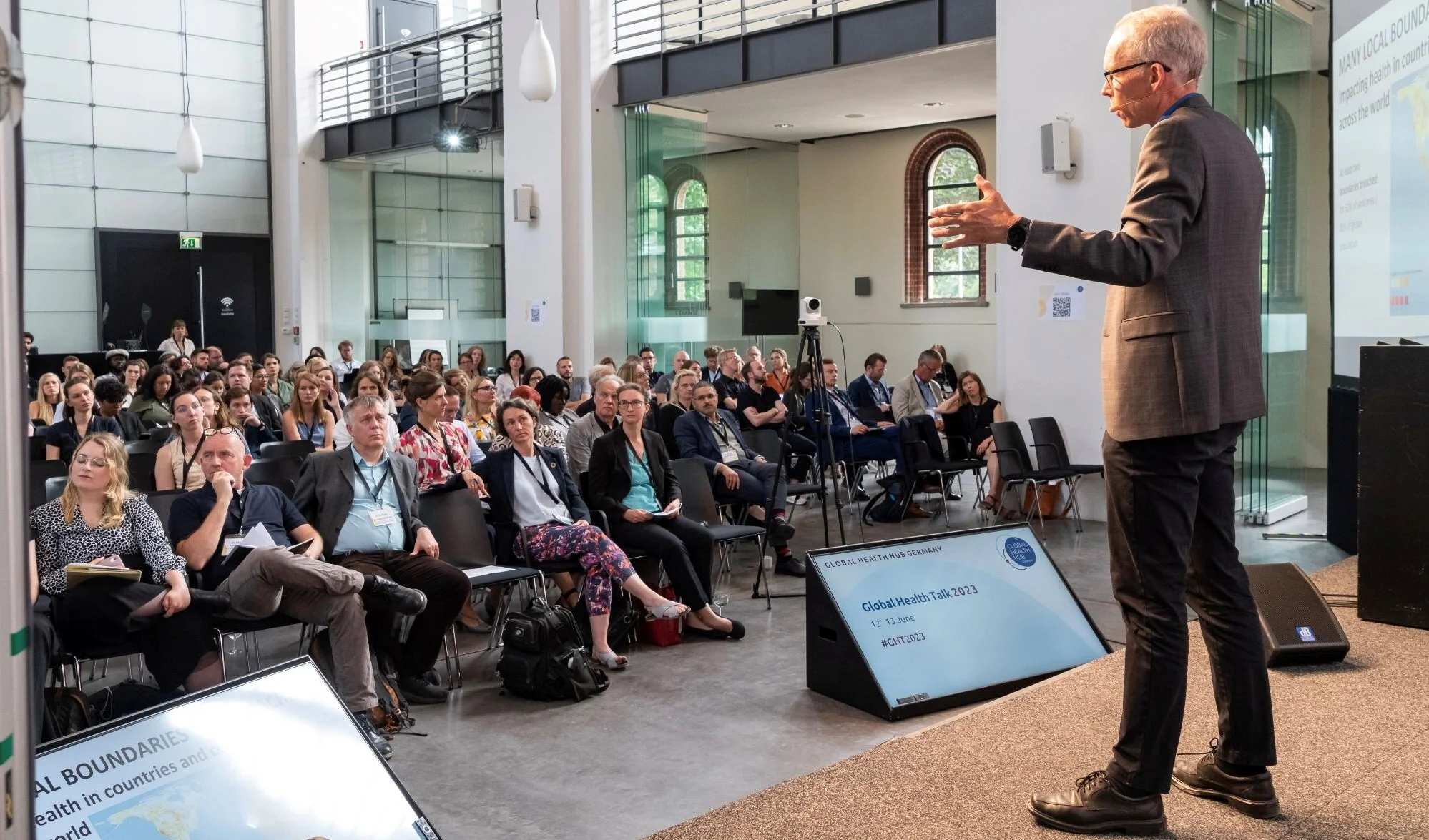
One of the main focuses of this year's Global Health Talk was the link between climate change, specifically heat, and health. Speakers and panelists presented the latest research, explored the challenges faced by municipal leaders, and showed a potential pathway for heat preparedness.
Listening to the science: How are climate change and global health connected?
Health is a global public good – not just human health, but the health of our planet. The two are deeply connected: human prosperity and social inclusion can only be achieved within planetary boundaries. But we are currently jeopardising both our climate and our health. Prof. Dr Johan Rockström, Director of the Potsdam Institute for Climate Impact Research (PIK) presented the latest science: every year, 6.7 million people die prematurely because of air pollution, which is mainly caused by the burning of fossil fuels. The climate and ecological crisis is clearly exacerbating the health challenge – and the Covid-19 pandemic was also an example of this. There are more crises to come: as the world heats up, floods and droughts become more frequent and more intense. Ocean surfaces are warmer than ever, and the World Meteorological Organization gives us a 66% chance of hitting the 1.5°C threshold within the coming five years. As the climate changes faster than predicted, the stability of the entire earth’s boundaries are threatened. Of the 16 climate tipping points, five are likely to be crossed at 1.5°C, including the collapse of the Greenland ice sheet, the die-off of coral reefs and the abrupt thawing of permafrost. In other words, if we continue business-as-usual, many regions will become uninhabitable and the health of people in countries across the world will be severely impacted. To avoid this and stay within our planetary boundaries, Rockström advocates treating our planet as a global public good. He argues that: “Health is probably our best vector in reaching out to decision-makers and citizens around the world, because it affects you immediately as a personal attribute.”
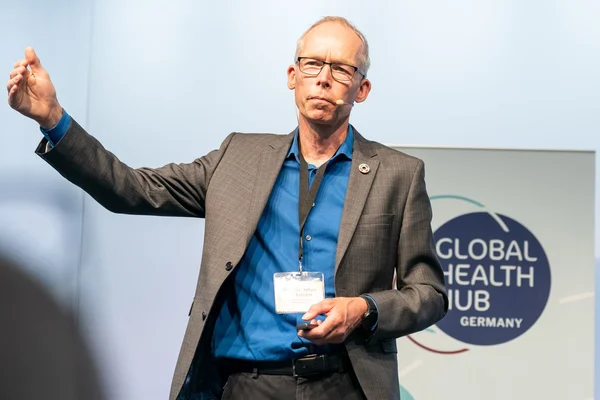
Feeling the heat: what’s it like to be a decision-maker in our hot world?
Every year, the connection between climate and health hits home more and more in our own lives. As summer approaches, the mercury rises and heat waves are announced. What can we do to prepare for heat in cities, which is where most people now live? Katrin Lea Heil, Advisor at Deutsche Gesellschaft für Internationale Zusammenarbeit (GIZ), and Sarah Splettstößer, Head of Political Dialogue of the Global Health Hub Germany, invited participants at the event and online to take part in a simulation used by G7 experts, giving them a glimpse into the reality of a decision-maker faced with this question. Conference attendees took on the role of the mayor of the fictional city of Grandurbia, and had to collectively prepare for yet another heatwave. They had just a few seconds to select the right way to help people cope with heat, from developing heat preparedness manuals and calling on the advice of public health institutes, to awareness-raising campaigns and coping mechanisms for living in the city. The audience chose mostly the correct responses, and – at least in this fictional world where political will and financial resources were unlimited – the city was well prepared when the heat arrived, allowing citizens to stay cool.
The way forward: how can heat preparedness contribute to urban health?
Heat preparedness becomes a different kettle of fish in a warming world. At international level, Prof. Dr Anna-Katharina Hornidge, Director of the German Institute of Development and Sustainability (IDOS), called for shared but differentiated responsibilities. According to Hornidge, G7 countries not only bear much more responsibility, they also have more opportunities for coping, adapting and mitigating. And while she agreed with Rockström that health can be a vector for climate action in situations of crisis, such as the pandemic, she specified that: “this doesn’t seem to be the case for creeping disasters like air pollution. For our society, it seems to be a lot easier to act when there is an immediate urgency, rather than when it’s a creeping problem that slowly builds up. The construction of crises – the social construction, political construction or through the media – is also important, because it contributes to the understanding of urgency. And here, referring to the concept of ‘Health for All’, a justice element is built into this: some are able to construct a crisis more effectively than others.”
Nathalie Nidens, Research Associate at KLUG – Deutsche Allianz Klimawandel und Gesundheit e.V., also underlined the deep connection between heat and health. She called for more interdisciplinary research and activities in this field, and said there was a lack of focus on short-term mitigation actions to prepare facilities such as schools and hospitals for heat. “People are dying THIS year,” she said. Communities must be in a better position to protect and help themselves – and each other. She recommended:
1. Being prepared: don’t wait for the heat to come, assess and implement the best solutions by working together with kindergarten teachers, nurses, staff at care homes, etc.
2. Raising awareness: reach out to civil society and the general population, so everyone knows how to help each other.
When asked to share his recommendations, Dr Peter Tinnemann, Director of the Public Health Authority in Frankfurt am Main, added to the list:
3. Make responsibilities clear: Who is responsible for what and how do we connect with each other?
4. Collect and use more data, i.e. leverage digital technologies.
Last but not least, Hornidge, who sits on the German Advisory Council on Global Change of the German Government (WBGU), announced the Council’s report “Healthy living on a healthy planet”. It focusses on human health, but also includes the health of animals and of ecosystems. It highlights the urgent need to act, and makes recommendations for ministries and the European Union on environmental, research and science policies.
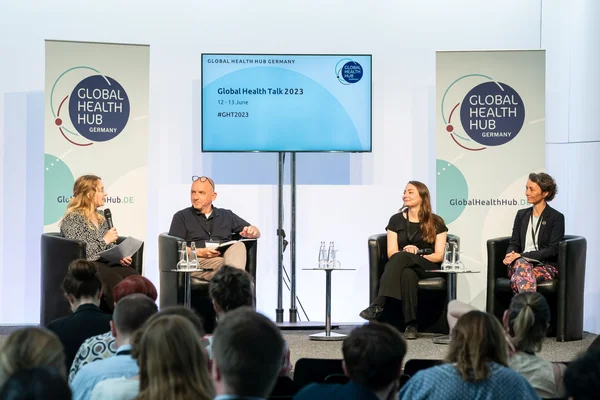
Related Articles
![[Translate to English:]](/fileadmin/_processed_/b/9/csm_IMG_9200_8f7ab231b9.webp)
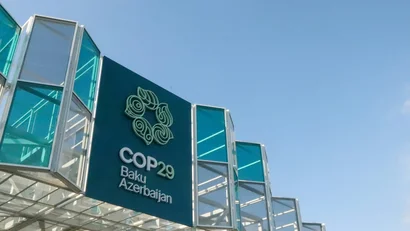
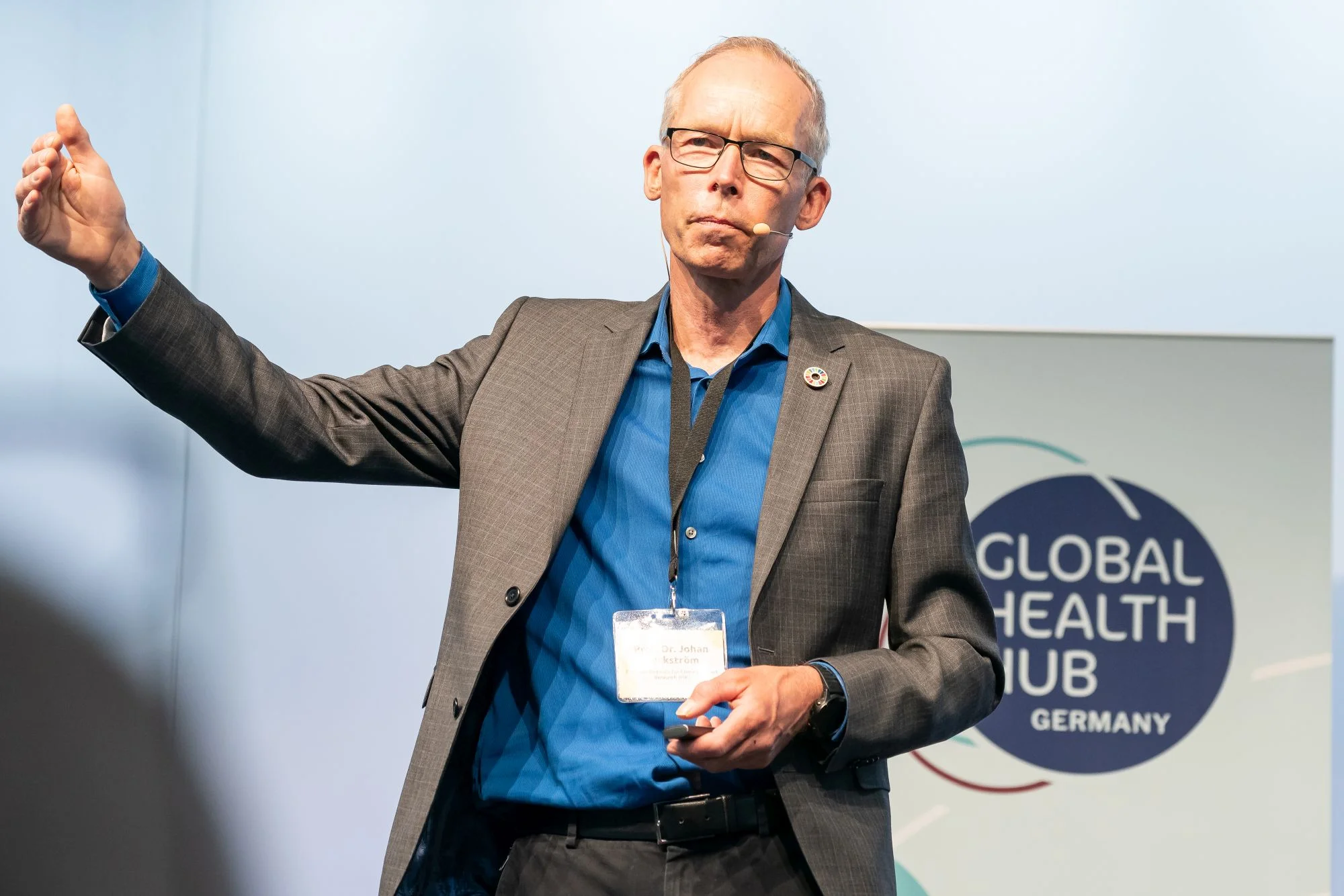
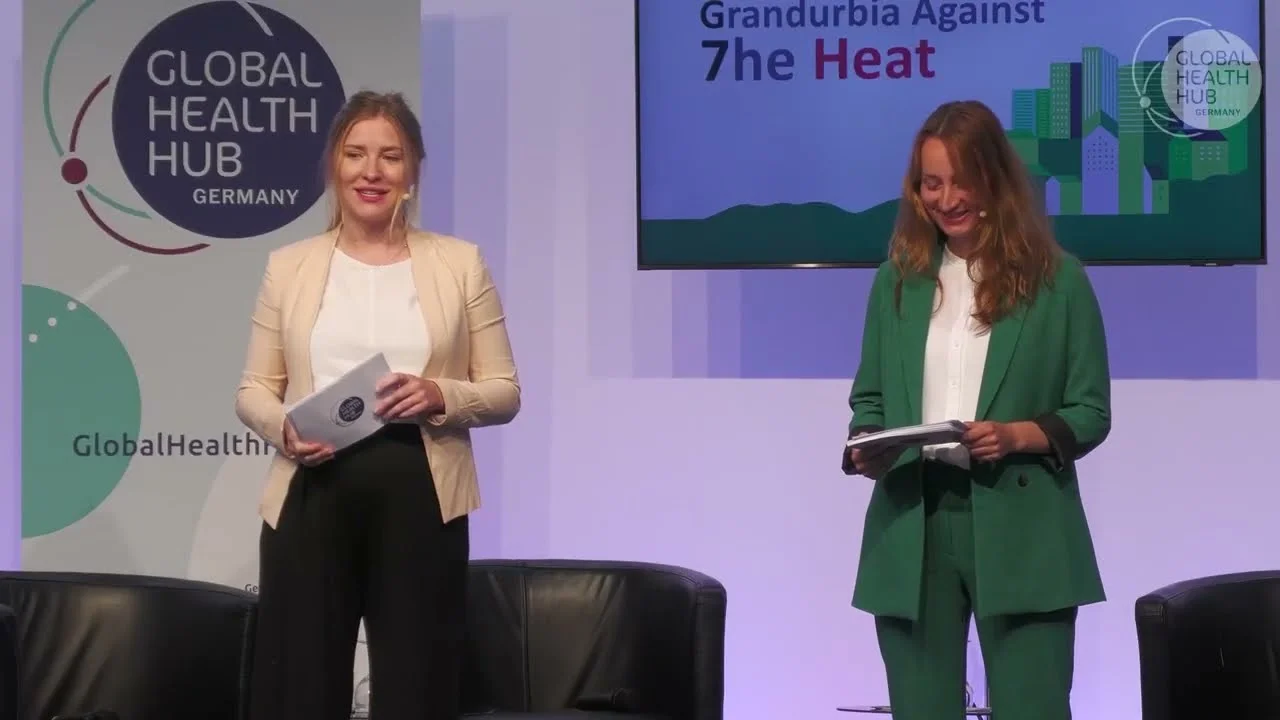
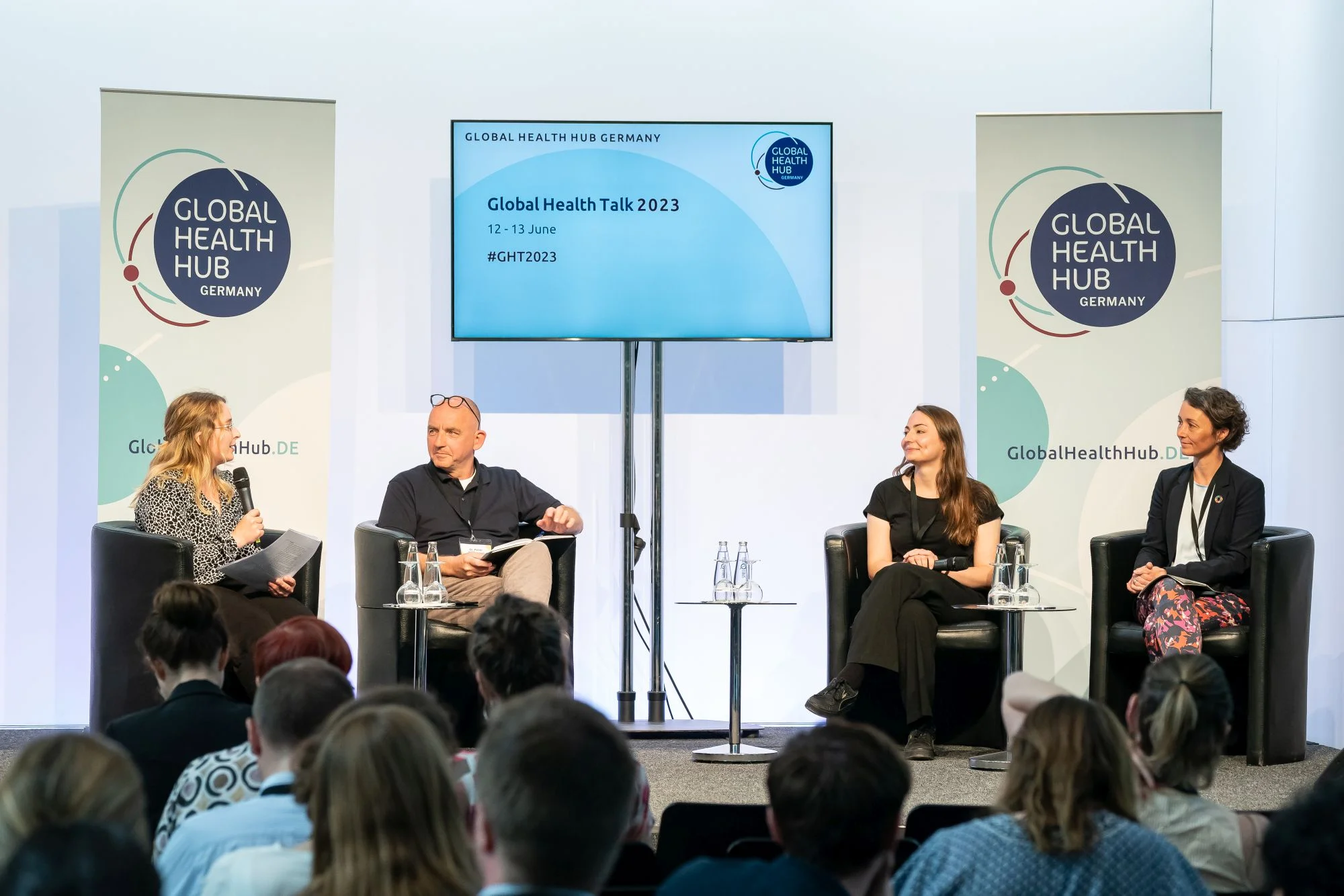
![[Translate to English:] [Translate to English:]](/fileadmin/_processed_/8/f/csm_20231004_GHHG_CPHP_Kooperation_Visualisierung_6d423e8355.webp)